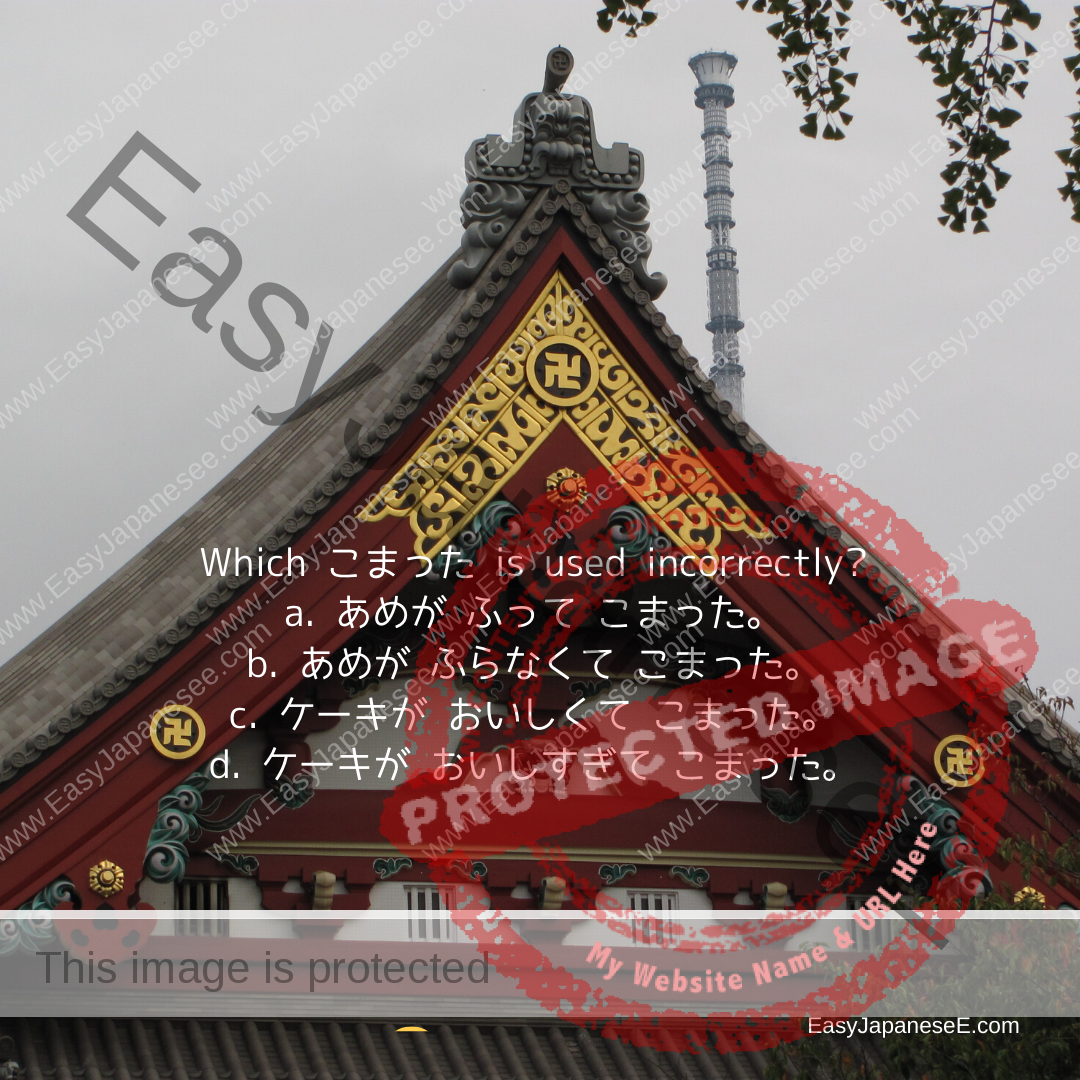Which こまった is used incorrectly?
a. あめが ふって こまった。
b. あめが ふらなくて こまった。
c. ケーキが おいしくて こまった。
d. ケーキが おいしすぎて こまった。
Today’s topic is the verb 困(こま)る. こまる is a rather difficult word to translate into English because there is no corresponding word in English. 困る basically describes that the subject person is (mentally) troubled because the situation is not what they have hoped for.
So which of the 4 situations is likely to cause mental distress?
The answer is c. If the cake is delicious, it won’t be a trouble. However, if the cake is too delicious as in d. then it can be a problem if you are on a diet.
As for a and b, people in a wet country will find having rain as trouble, but people like us in a dry, drought-prone country, not having rain is a big problem.
Like most verbs, こまる/こまります in the non-past form describes the transition from not being troubled to being troubles, so if you want to describe the state/condition where you are troubled, it has to be in the form of こまっている/こまっています.
Let’s have a look at some more examples.
トイレが みつからなくて、こまった。
There was no toilet around, so I didn’t know what to do.
のどが いたくて こまっている。
I suffer from a sore throat.
じかんが なくて こまっています。
We are pressed for time.
ジョンさんは このごろ おかねに こまっている そうだ。
I hear John has been in financial difficulties recently.
へんじに こまりました。
I was at a loss for a response.
それは こまります。やめてください。
We can’t have that. Please stop it.
困ったときの友が真の友。
こまった ときの ともが しんの とも。
A friends in need is a riend indeed. (proverb)


One Reply to “こまる”